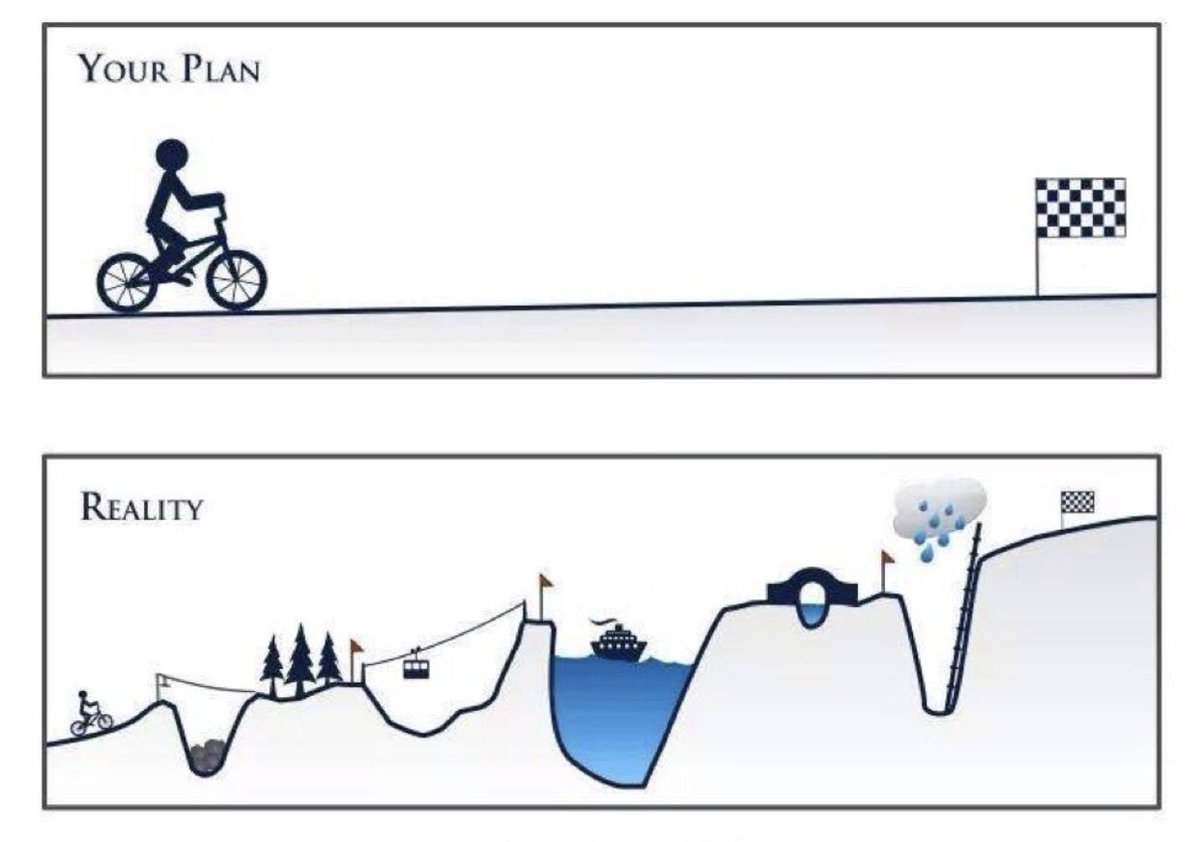Startups have been generating a lot of buzz across the world, over the decades and people have been turning to entrepreneurship overnight. Every startup begins as a result of intense enthusiasm or real passion. However, the popularity and growth of your startup all boils down to how well you can implement your idea and be consistent about it. People tend to have a perception that startups are glamorous and make you famous, but once the reality checks are done, you will see that it is easier said than done. It is gravely disappointing when you fall short on your own expectations, which is why it is better to take precautions by making sure you know the realities.
So, we have made a list of certain returns which people expect from startups, alongside what startups actually bring to the table.
1. Hiring

Expectation: “I’m gonna get the perfect workforce for my startup with whatever I offer them.”
Reality: Well, the reality is totally different than that. When it comes to employees, it will be safe to say that ‘perfect’ only applies to Disney characters and your imaginations. You need to compromise some of your collective wishes and hopes while you are going through the list before recruitment, and even more while interviewing them, because the perfect person just does not exist. Also while interviewing your candidates, you might just happen to come across someone who fits the position almost like a piece of a puzzle, but is not satisfied with what you are offering. Hence, all you are left with is another deal-breaker.
2. Involving Tech Stuff

Expectation: You might think that you have a brilliant idea which involves a fair amount of technological stuff, and that it won’t be that tough, with the ample funding you received for the project.
Reality: As thrilling as it is to merge technology with anything that you offer, you should keep in mind that it will not turn you into a millionaire overnight. At present, with so much competition around, the bankability of an idea can put investors at sixes and sevens. When you are starting and registering a new business, you certainly are stepping in the right direction, but it could crumble just like a house of cards. Hence, your idea should be resilient and you should be prepared to rack up occasional debts and still make your ends meet.
3. Workload

Expectation: You would start thinking that since you own a startup, you have to work less and thereby, do all those little things you always wanted to do in free time or maybe visit a place or two where you always wanted to go to.
Reality: Well, let’s get one thing straight, that is, you will be working more than ever. Period! You are going to see that there will be countless things left to do and you may often feel running out of time to check that list off. Running operational errands, paying bills, keeping customers satisfied and even grabbing every possible opportunity that comes your way, is going to keep you busy all day. Your startup is going to require your unvarying attention and even micro-management in some cases.
4. Investors

Expectation: “My investors and I are almost like friends! We hang out together and have beers on weekends, so they will understand me and my business decisions because our relationship is beyond money.”
Reality: Well sure, but there’s a catch. You are more like friends with benefits to them, that is, they are cheerful when things are going smoothly, and sullen when you hit a rough patch or things get sour in terms of business. To be blunt, you love each other only because of the money involved in the business. You are going to love them when their money helps your startup grow and they will be happy to support you till your business helps their money grow. So, to build trust, just keep them satisfied with timely returns. When you have proved your worth and earned their trust, only then will you have laid the foundations of a long-term relationship with your investors.
5. Virtual Offices

Expectation: You might have a feeling that human interaction is highly overrated and that you can grow your startup with a virtual team.
Reality: There is no doubt that a revolution in the form of the remote workplace has been doing wonders for companies since the past couple of decades. However, it will be really beneficial for your business if you keep the offices as less virtual as possible, during the initial days. This is because emergencies may arise anytime during the early stages of a business, and you will have to take certain decisions on the floor. The luxury of Skype calls may not be available to you at times. So, you can, in no way, replace the physical presence of a team. Perhaps, the most essential aspect of your newborn startup is building your A-team, which plays a larger role to define the future of your startup. You know what they say in the modern corporate world: “Keep your friends close, your enemies closer, and your core team the closest.”
6. Stake holding

Expectation: “I am not gonna give up my share of equity to tech partner because I came up with the idea and I helped to raise the fund as well.”
Reality: Though ideas are important, executing them is the key. To support this, here is an example. Thomas Alva Edison was not the one who actually invented the light bulb first, but he worked to make it commercially viable. Many others were in the race to be the first one to create a commercial light bulb, but we all know who did it first. Developers are really valuable assets these days and they do have all the potential to add significant value to your startup. The one whom you trust the most can be the most valuable asset in your team. Hence, if you give him even a bit more than 50% of the shares, your business will be reaping the best possible advantages.
Now, are you an entrepreneur? If you are, I’m sure you must have had a few things in your head while starting up. What were your expectations and were you right to have expected them? If no, then what did you do differently in reality when you started making money? Well, do not hesitate to share your thoughts in the comments section below.






